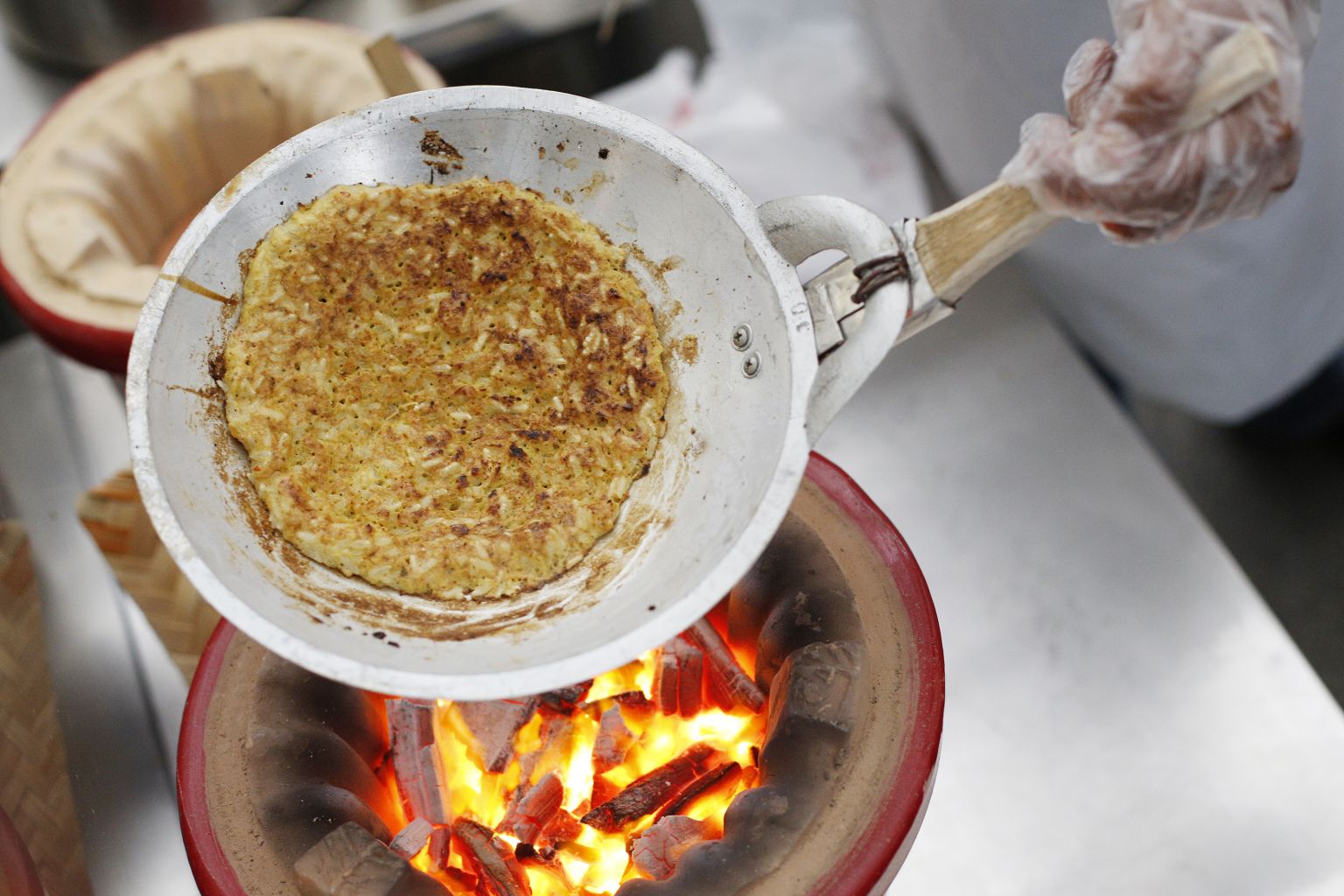Chefs push for international promotion of Indonesian street food and regional dishes
Indonesian chefs think the government can help put the country's food on the global culinary map
Sign up now: Weekly recommendations for the best eats in town

Kerak telor, an Indonesian spicy omelette.
PHOTO: ST FILE
Follow topic:
(THE JAKARTA POST/ASIA NEWS NETWORK) In recent years, Indonesian food has received good reviews internationally.
CNN Travel, for example, named rendang (beef simmered in coconut milk and spices) as the World's Most Delicious Dish in 2011. During the recent World Street Food Congress 2017 in Manila, the Philippines, American chef and television personality Anthony Bourdain reportedly praised the different kinds of Indonesian cuisine that have influenced the culinary palate of other South-east Asian countries.
Although Indonesian food has captivated the interest of many foodies around the world, the country still lacks culinary credentials. Local chefs believe it has a lot more to offer than the commonly known dishes.
"I believe regional dishes such as kerak telor (spicy omelette) from Jakarta, lumpia Semarang (fried spring rolls) and ayam betutu Bali (Balinese-style roasted or steamed chicken) are some of the dishes that have not yet reached their potential in attracting tourists," celebrity chef Andrew Karmajana said. But with proper promotion, they could have a positive impact on tourism, he added.
Chef Kenny Rianto of Taste Paradise, Grand Hyatt Jakarta, agreed, saying: "A little help from food bloggers will have a huge impact because bloggers have a tremendous network of loyal followers, some of whom can be pretty fanatic."
The chefs believe the government can play an important role in helping put Indonesian culture on the global culinary map. Chef Kenny said the government should hold more events or festivals targeting youth so that they can learn more about their own food culture.
Ganesha Pideksha, the executive chef of Tanamera Coffee Indonesia, agrees that the food industry has the potential to grow, if the younger generation takes an interest in it.
"Indonesian cuisine has a lot of potential abroad and the government needs to work together with big producers or entertainers and produce content that will help young people to understand more about the local food culture," he said.
He said there was also a need to promote the diverse food on the islands in the archipelago.
"Indonesian food has a lot to offer and it's not only rendang, bakso (meatball soup), nasi goreng and satay. For example, Manadonese food is always good and I think soto laksa Medan tastes better than Singaporean laksa," he said.
The rich flavours of the country and its street food are showcased at a number of culinary festivals in the country. Residents in the capital were recently treated to food events including Festival Kuliner Nusantara (Indonesian Culinary Festival) at Mall Artha Gading in North Jakarta and Kampoeng Legenda in Mal Ciputra in West Jakarta.
Indonesia, a country with more than 17,000 islands, has a rich culinary heritage and has attracted international trade for centuries thanks to the abundance of its spices. Its street food, made from local ingredients and cooked in traditional ways, have the potential of attracting fans worldwide.
Chef Kenny, who is also a food consultant, says Indonesian street food such as sweet martabak manis (pancake) can be introduced easily overseas. The dish is available on practically every street corner, especially in the evening. Once the batter is cooked, the layers are slathered with an assortment of ingredients, from butter to chocolate sprinkles to freshly grated cheese. Condensed milk is then drizzled over it and peanuts and sesame seeds added on top.
"Nowadays there are more martabak choices. I'm pretty sure it would be easy to introduce to other countries. My family, who lives in Singapore, is always craving martabak and they always ask me to bring some to Singapore every time," said chef Kenny.
Although Indonesian street food is tasty, efforts to improve hygiene and presentation are necessary to increase its appeal.
"Hygiene and sanitation in Indonesia is a big problem, starting from the water we use to wash dishes to cooking methods. We need to be aware of this problem," chef Ganesha said.

